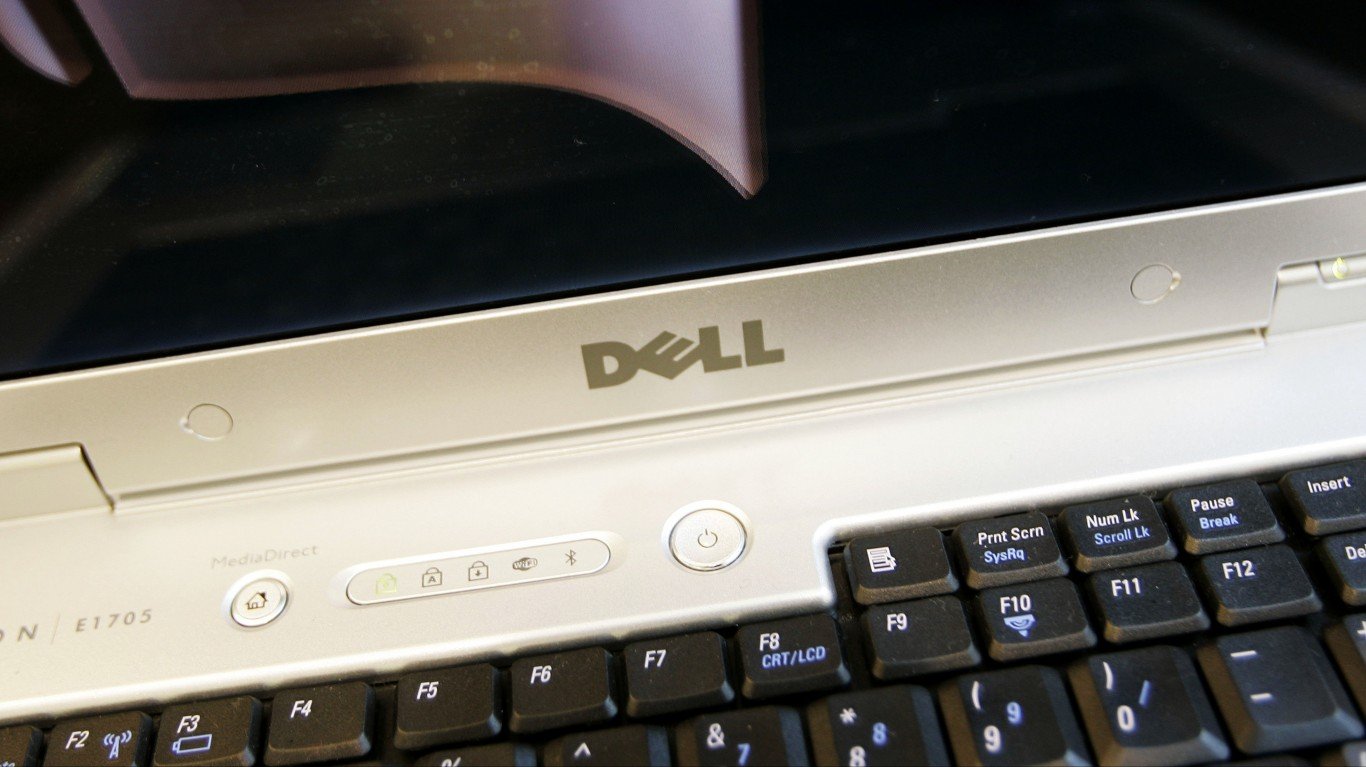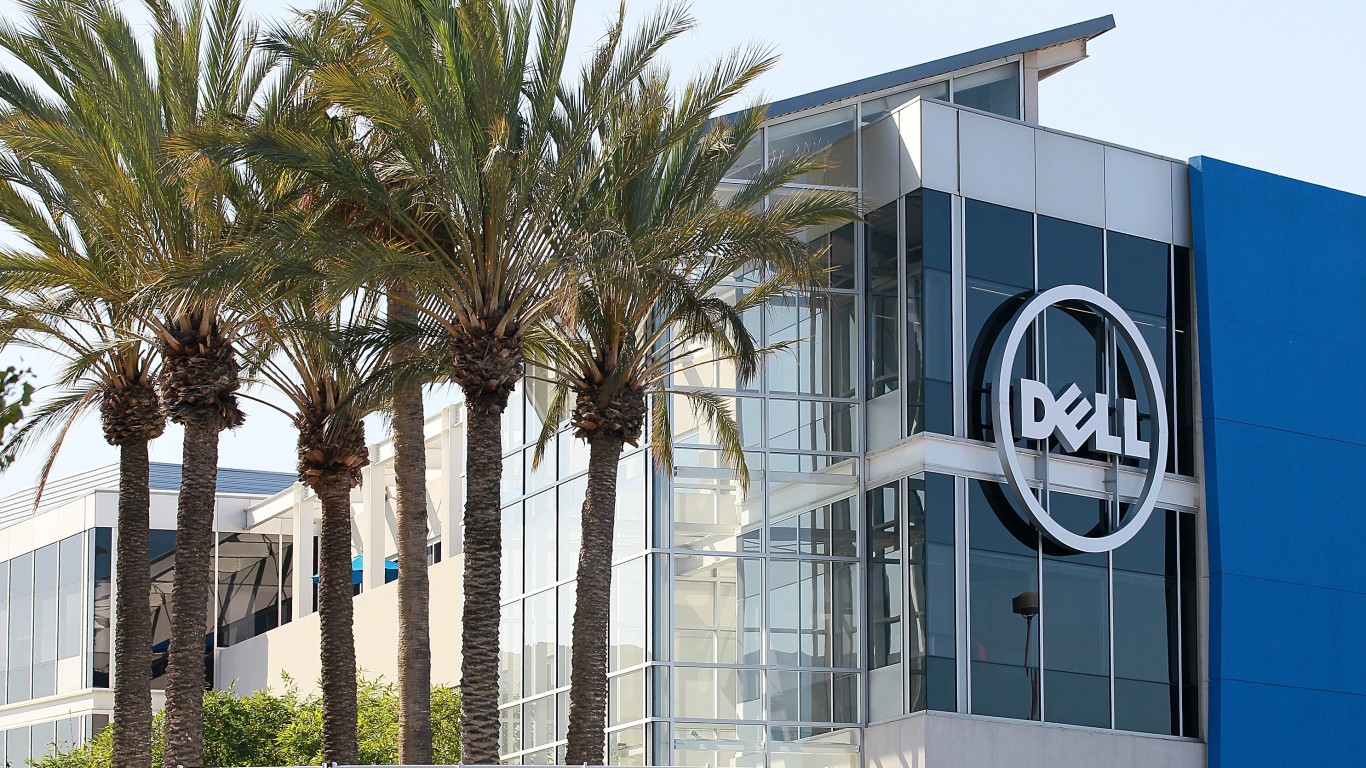

If you’re in the market for a new desktop computer or laptop, chances are HP (NYSE: HPQ) and Dell (NYSE: DELL) will have options close to the top of your list. Unless you’re a PC expert, however, it can be hard to decide which brand to go with, if either, and what specs you should focus on. Given the number of products, the variability of specs and capabilities, and the wide range of prices, the HP vs. Dell debate will rage far into the future. But which brand is better? Which one should you get?
There are a wide range of computers available. In the United States, however, HP and Dell control most of the market and offer the widest range of computers for personal and business use.
Why HP vs. Dell?

As any PC expert will tell you, if you really want to get the best PC to meet your needs at the best price, you have to build your own. When you buy a pre-built PC like those sold by HP, Dell, or any of their other brands like Alienware or Omen, you pay a markup for the brand name and the assembly. You also have to pick from pre-decided specs and pick the best one that fits your needs, which might not always be a perfect fit.
However, if you don’t have the time or the desire to build your own PC, pre-built offerings from HP or Dell are usually good enough for whatever you plan to do. As two of the largest PC companies, HP and Dell offer a wide variety of desktop computers and laptops that appeal to most of the general needs of their customer base.
Before you begin your computer shopping journey, you need to decide what exactly you need one for. Are you replacing an old computer? Will you use it for gaming, video production, basic work, or something else? These are just a few of the questions you need to answer to make sure you not only get the computer you need, but that you also don’t overpay for a beefy computer you’re not going to use that much.
HP vs. Dell at a glance

There are so many different computers available from both HP and Dell that comparing each one based on their specs, price, and quality would take too long and not be very useful. In general, though, the best advice is to look at the specs and quality of individual computers after you have decided on your personal requirements and ignore the maker’s name or brand.
It is impossible to say which brand is better overall. Each one has products that excel in different situations and fill different needs. Don’t stick to one brand over another, especially if the computer you have now isn’t meeting your expectations. Try different brands with the same specs and you might find better options.
Finally, if you are considering an HP or a Dell computer, it’s probably because you have settled on Windows or Linux as your preferred operating system.
All HP and Dell computers come with Windows preinstalled. That’s why, if you are looking online for comparisons, you won’t find Apple (NYSE: AAPL) computers because they all run a different operating software and typically serve different needs.
HP vs Dell Desktops

If you are assembling a list of the top ten best desktop PCs for your home office, chances are Dell computers will fill 3 to 4 of those spots. This includes Dell computers and their other brands like Alienware. The rest would be split between HP, Acer, Lenovo, Apple, and other computers.
Dell desktops are good at pretty much everything when bought pre-built. If you want a computer that can handle gaming, video production, work, and kids playing around on it, a Dell computer is generally a great buy for the price.
HP desktops are going to be your reliable, cheaper office-quality computer. You can buy them cheaper and still expect them to run. They don’t specialize in more high-powered versions like Dell, but they do what they say on the box.
The most expensive Dell computers will run you between $3,000 and $4,000. These are typically gaming computers with high-end graphics cards and processing units. The most expensive HP computers jump from $2,000 up to $4,000. Most of these are from the OMEN gaming computer line.
It’s safe to say, that if you don’t have any interest in PC gaming, you definitely don’t need to spend anything near this much on a computer. In fact, most of the differentiating specs between HP and Dell come down to processing, memory, and graphics. If you are using your computer for homework or business, you should be looking at things below $1,000.
HP vs Dell Laptops

While Dell and HP can compete pretty closely in the desktop market, Dell outshines HP in laptops. Laptop computers require special technology and hardware in order to operate effectively and safely without a sustained power source and without taking up a lot of space. While HP is great at producing reliable desktop computers that work without much issue, their expertise does not carry over to laptops.
If you are looking for value laptops, HP can still be a valid option. They are generally more affordable and still work fine with normal workloads. However, they usually have smaller displays and shorter battery life. Dell computers typically have a better, more attractive design, can perform better under high workloads, have better displays, and have longer battery lives. On the other hand, some parts of Dell laptops are not upgradeable or customizable, so you cannot interchange some parts as they grow old.
Company Values

In the end, if you have a Dell and an HP computer that both have the specs you need, the design you like, the capabilities you want, and both are within your price range, the final decision really comes down to your own style preferences and the company you want to support.
Today’s up-and-coming generations are significantly more informed about the companies they support with their money. This might seem silly to older generations who simply want to find the best deal or the best product, but how companies conduct themselves and how they impact the world are increasingly important factors for younger generations.
In this area, again, Dell beats HP. Because HP focuses on more areas than just computers, it also has a larger impact on the world through its subsidiaries and partners, and it hasn’t always taken that impact seriously. To be fair, both companies have caused scandals and received criticism for their products, safety measures, and financial documentation. HP, however, has had numerous scandals that range from receiving funds from supporting Israeli settlements in Palestinian land, bribing government officials in Russia, China, and Mexico, to withholding wages from employees.
On the other hand, both companies have earned a fair amount of positive press regarding their environmental policies. HP has earned several awards and accolades for setting and meeting environmental, recycling, and pollution goals. It has received recognition for producing safe products and reducing electronic waste. Dell has also received high praise for its efforts to reduce carbon emissions, source its materials ethically, and recycle old components. Social and political pressure continues to convince these companies to make increasingly earth-friendly decisions about their business.
It would take a leap of logic to call either company morally ethical or ecologically responsible. Yet, if you need something for work, like a computer, sometimes you have to bite the bullet. Buy the computer that fits your needs and budget, then use that computer as a tool for change. We recommend you begin your search with Dell and see what computers match your style and requirements. Once you find one or two that you like, expand your search to HP and others to refine your decision.
Essential Tips for Investing: Sponsored
A financial advisor can help you understand the advantages and disadvantages of investment properties. Finding a qualified financial advisor doesn’t have to be hard. SmartAsset’s free tool matches you with up to three financial advisors who serve your area, and you can interview your advisor matches at no cost to decide which one is right for you. If you’re ready to find an advisor who can help you achieve your financial goals, get started now.
Investing in real estate can diversify your portfolio. But expanding your horizons may add additional costs. If you’re an investor looking to minimize expenses, consider checking out online brokerages. They often offer low investment fees, helping you maximize your profit.
Thank you for reading! Have some feedback for us?
Contact the 24/7 Wall St. editorial team.



